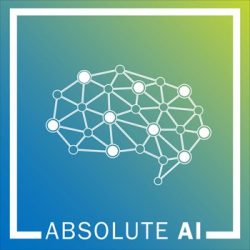Highlights
-
-
[1:08] Mark’s Career In Technology and Artificial Intelligence
-
[5:00] The Value of Interoperable Health Data
-
[8:35] Overcoming Systematic Stumbling Blocks In Data Sharing
-
[12:20] The Impact of AI on Workflows and Diagnostics
-
[16:30] Protecting Health Records While Improving Interoperability
-
[26:40] The Future of AI and Healthcare
-
Mark's Insights
-
-
[11:40] “We’re all benefitting from this better way of calibrating our particular health journey.”
-
[21:05] “We can get tremendous intelligence out of this data, but not sacrifice the health patient’s data security.”
-
[27:04] “It’s all about the data. Twenty-five years ago it was all about the data and today it still is.”
-
Mark's Bio
Mark Kujawski is the founder, CEO, and managing director at Aztech Health. Mark brings more than twenty years of technology consulting experience to launch the vision of a next-generation healthcare technology company. Beginning with his work with the Monitor Group to develop a new application platform based on machine-level learning to his role as one of the top consultants leading Accenture’s Health and Public Service Group, he has accomplished an extensive portfolio of successful healthcare projects across the payer, provider, and pharmaceutical industries. He has now turned his attention to the requirements of the new healthcare landscape with the launch of Aztech.
Aztech Health utilizes a combination of the extremely successful consulting frameworks Mark has developed from his experience with the Monitor Group, Oracle, Cloud Sherpas, and Accenture. He has also helped develop exciting new software products, which will be the primary focus of Aztech Health, as more and more organizations achieve complete interoperability with their patient health data. His company, Syntrelis, developed one of the first healthcare data preparation platforms and serves as the precursor to the software development portfolio for Aztech.
Mark has assembled and managed great sales teams and has set the standard for an effective and inclusive company culture with Aztech. He holds degrees from Tufts University and the University of Massachusetts/Boston in Economics and International Relations and has completed graduate certification at the MIT Sloan School Executive Education program.
Show Notes
From automating manual processes to utilizing the millions of health data points in predictive analytics, the future of healthcare stands to benefit greatly from the application of AI and machine learning. In this episode of the Absolute AI podcast, Melody welcomes Mark Kujawski, founder, CEO, and Managing Director at Aztech Health. Mark has had a long career working on the front lines of technology transformation with companies like Accenture, Oracle, and Hewlett Packard. As a strategy consultant, he has helped many healthcare organizations improve their delivery capabilities and is now leading his company, Aztech Health, to liberate patient health data. Together, they discuss a facet of AI that affects every one of us — utilizing health data. They examine the role that machine learning can play in making more informed healthcare decisions, the stumbling blocks that have yet to be overcome in making this transition, and what exactly the future of healthcare and AI could look like.
THE VALUE OF PATIENT HEALTH DATA INTEROPERABILITY
The Interoperability and Patient Access final rule (CMS-9115-F) requires healthcare providers and insurers to unlock patient health data from their various systems to drive interoperability and allow for unimpeded data exchange across the entire healthcare ecosystem. This movement is ubiquitous, but interoperability itself has an entire set of data decision points — and stumbling blocks — to go with it. Mark explains the role that AI and machine learning can play in something as simple (and previously complex) as determining health risks based on location and lifestyle.
AI AND INTEROPERABILITY CAN IMPROVE WORKFLOW AND DIAGNOSTICS
From nursing scheduling and staffing streamlining with the use of HCAHPS to renewing and refilling prescriptions, AI has the ability to greatly improve healthcare workflow operations. The liberation of patient health data presents one of the most significant opportunities for the advancement of medical treatment and long-term wellness capabilities that has ever been presented to the practice of healthcare. Therefore, the approach should be developed with a focus on both compliance and as well as innovation.
OVERCOMING BARRIERS TO DIGITIZED HEALTH DATA
To be successful, the health data reformation will have to follow in the steps of financial services. First, everything must move away from paper and completely digitize, and second, the data security aspect of the transition must adhere to best practice standards and governance that will continue to protect the privacy of patients. There has already been a successful transfer of digital application and technology from the financial sector into the healthcare sector, but there is still a long way to go in making the transition complete.
THE FUTURE OF AI AND HEALTHCARE
Healthcare data is being created in a remarkable variety of ways and also in an incredible quantity, making it a prime source for AI learning. AI offers robust machine learning with consistent methodology and the ability to understand complex medical terminology, which has the potential to develop applications that will streamline health data and offer greater understanding and insights into human health, benefitting all of us.



